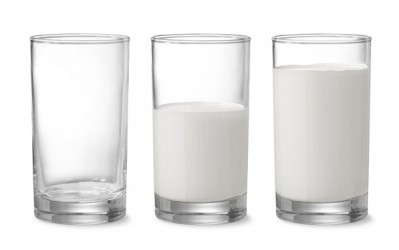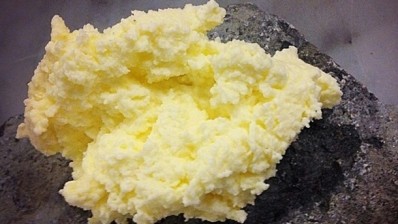Tufts study suggests butter is ‘back' but Harvard researchers say not quite

According to the study, researchers at Tufts University found evidence that suggests there is a relatively small or neutral overall association of butter with mortality. It also states that the findings do not support a need to amend current dietary guidelines to either increase or decrease butter consumption.
Oversimplifying a complex message
Bonnie Liebman, nutrition director for the Center for Science in the Public Interest (CSPI) issued a statement urging the public and the press to not interpret the study to mean that butter can be part of a healthy diet.
“The new study acknowledges that unsaturated oils and spreads are healthier than butter—the key takeaway message for consumers,” Liebman said.
“Yet most people will simply hear that butter is a harmless or healthy food, thanks to headlines with various permutations of the ‘butter is back’ myth, which is based on questionable evidence.”
Healthy is a stretch
Supporting Liebman’s concerns are researchers from the Harvard T.H. Chan’s School of Public Health who, in a recent article, said: “Butter is not ‘back,’ and the study authors didn’t find this either.”
Rather, senior author Dariush Mozaffarian of the PLoS ONE review noted that, “Overall, our results suggest that butter should neither be demonized nor considered ‘back’ as a route to good health.”
Instead, CSPI and Harvard T.H. Chan’s School of Public Health say they want the public to be aware that unsaturated fats such as extra virgin olive oil are supported by scientific research to be healthier than butter.
Different fats have different health implications, Harvard study says
A recent study published in JAMA Internal Medicine found that a higher intake of saturated fat found in foods such as butter and lard, was associated with a greater risk of mortality.
“There has been widespread confusion in the biomedical community and the general public in the last couple of years about the health effects of specific types of fat in the diet,” said Daniel (Dong) Wang, MD, ScD, Research Fellow in the Department of Nutrition at Harvard T.H. Chan School and lead author of the study.
“This study documents important benefits of unsaturated fats, especially when they replace saturated and trans fats.”
The study surveyed 126,233 participants who answered questions about their diet, lifestyle, and health every two to four years for up to 32 years. Within that time period, 33,304 deaths were documented. Researchers examined the relationship between types of fats in the participants’ diets and overall deaths in the group.
What the study found was that different types of dietary fat had different associations with mortality, transfat being the biggest culprit of having an adverse health impact.
According to Wang, every 2% higher intake of trans fat was associated with a 16% higher chance of premature death during the study period. Similarly, higher consumption of saturated fats was also linked with greater mortality risk.
A call for more research
Other nutritional experts are in agreement that the study conducted by Tufts calls for more research on the health and metabolic effects of saturated fat.
“This study adds to the growing body of literature that saturated fat is not associated with cardiovascular disease risk,” Dr Mickey Rubin, vice president of nutrition research for National Dairy Council told DairyReporter.
“This study also makes interesting observations that we should not assume foods are just a reflection of a single nutrient or ingredient. We need more studies examining the associations and effects of foods on health outcomes, because foods like butter may be more than just the sum of their parts.”







